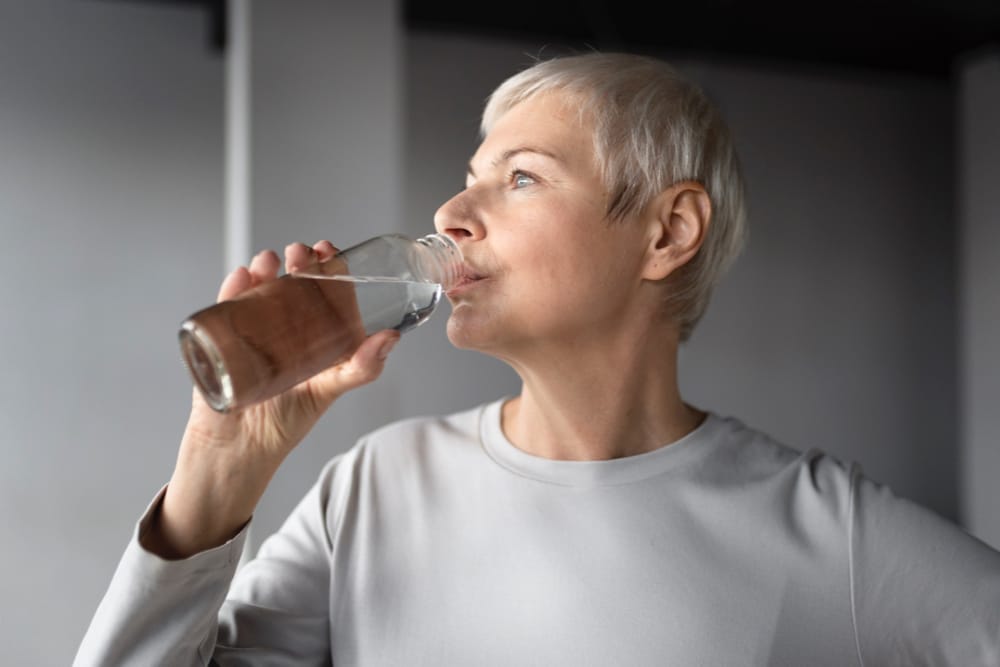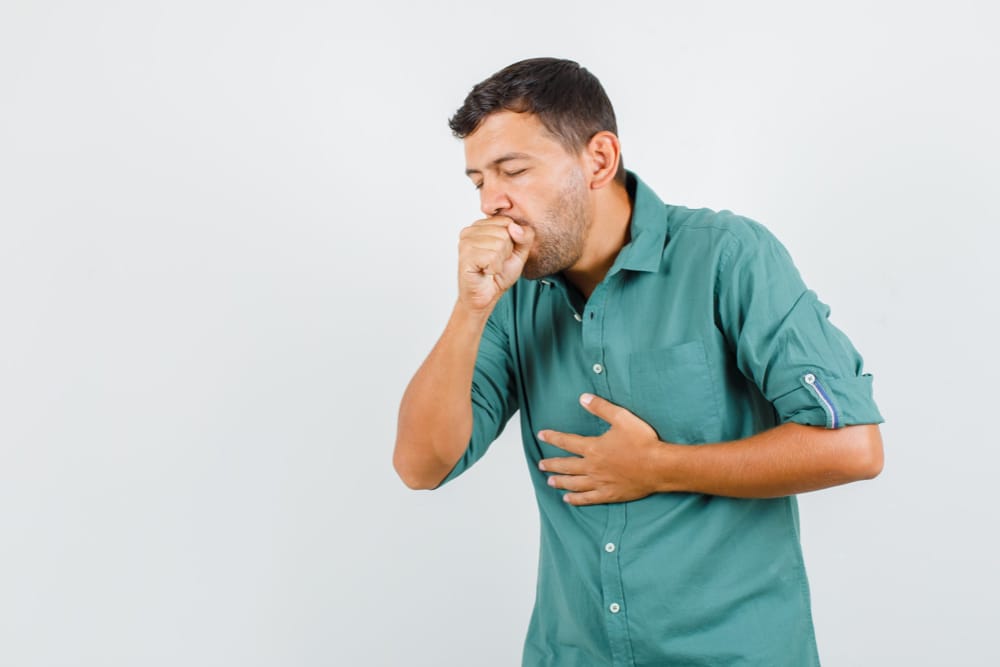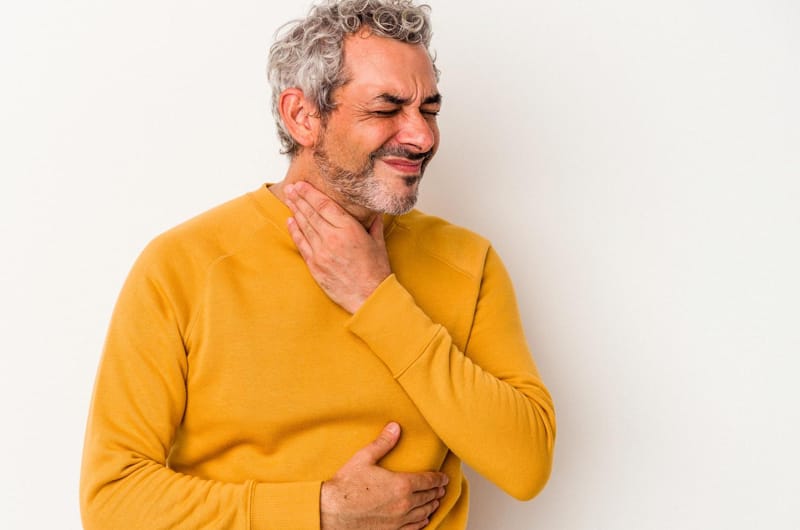It’s completely fine to notice brown specks in your phlegm within a few weeks of quitting smoking since it involves a natural clean-up process initiated in your body to detoxify. You can help yourself through this process by drinking lots of water and other warm beverages. Home remedies like sipping a bit of honey and physical activity too can help soothe your phlegm. It’s important to keep a cautious eye out for other symptoms since sometimes brownish phlegm could be pointing at medical conditions such as Lung Abscess and Acute Bronchitis for which you’ll need professional help from your doctor.
A phlegm is a type of mucus that is created within your chest.
The quantities of phlegm produced, its texture, and colors, like yellow, green, brown can say a lot more about the condition that you’re experiencing than you’d imagine.
While brownness in phlegm could point at many possibilities, the coincidence that you’ve just quit smoking could narrow down the cause to simply one.
Is it okay to experience brown specks in phlegm after quitting smoking? Can you speed up your phlegm excretion process? Could brown specks in your phlegm mean something else? What are some home remedies to treat your phlegm and cough? Can you clean out your smoky lungs in a natural way?
Is it normal to experience brown specks in phlegm after quitting smoking?

Coughing up brown phlegm once putting an end to your smoking habit is nothing to worry about and here’s why.
When you’re constantly smoking, the tobacco smoke tends to freeze the movement of little strands of hair known as cilia.
Cilia is responsible for transporting mucus out of your lungs.
But, once you quit smoking, it gives cilia the capacity to be active once again and due to the amount of tar that you’ve inhaled over time, the mucus would appear with brown specks of collected tar.
This is a healthy reaction of your body, which shows that your lungs are attempting at cleaning themselves up.
The duration of this process might depend from person to person and may carry on for a few weeks.
Can you speed up this brown-phlegm excretion process?

You definitely can help yourself ease into this phlegm situation by primarily making sure that you remain hydrated always.
You can drink fluids like water, fresh fruit juices, and even tea.
Fruits like watermelon may be helpful, given that it contains 92% water.
You can also expect relief by taking a few teaspoons of honey before you go to sleep daily.
Honey contains antioxidants that work miraculously in cleaning up your lungs as proven in a 2014 study conducted by the US National Library of Medicine.
If you find your cough to be extremely disruptive and intense, you can also resort to using a humidifier or vaporizer to help soften the thickness of your phlegm.
This will be all the more useful in cold weather as phlegm can be aggravated in the cold.
What else can cause brown specks in phlegm?
If you’re even slightly concerned that your brown phlegm may not be a part of your post-smoking experience, it may be time to look into other causes.
Fungus allergy
Aspergillus fungus is commonly discovered in plants, soils, and rotting vegetation.
You can also expect wheezing and fever as other symptoms.
Treatment
Various over-the-counter medications can be taken in order to control the inflammation as well as antifungal drugs.
Lung Abscess
This can occur in situations where bacteria in your mouth travel down to your lungs and trigger an inflamed cavity of pus.
Treatment
Your doctor may recommend a range of antibiotics for you to take over a few weeks such as clindamycin.
Bacterial Pneumonia
This condition may start up with the swelling of tissues in either one or even both of your lungs.
A dry cough with phlegm in the color of red, green, brown can be expected.
Treatment
In terms of treatment, you’ll need antibiotics to get rid of the bacteria and cough medicine to soothe your rough cough.
You may also receive a prescription for pain relievers to treat your fever and bodily discomfort.
Acute Bronchitis
This condition is mostly caused by viral infections and triggers an inflammation along the airways leading to your lungs.
You may also experience chest tightness, fever, sore throat, and a stuffy nose.
Treatment
This condition can disappear on its own with time. But you can surely help speed up the process by using a vaporizer, steaming, and taking hot showers.
If you don’t recover you may have to resort to antibiotics.
Chronic Lung Disease
Many conditions are included under this term and it includes lung disorders that cannot be healed but only managed.
Treatment
In order to control symptoms of this condition, various medication forms such as bronchodilators and Beta2-agonists can be used to relax the airways as per a 2021 study.
Home remedies to treat cough and brown phlegm after quitting smoking
Quitting smoking is not an easy process at all. The temporary after-effects of it might even tempt you back into smoking.
So, it’s important to know how to soften the blow effectively.
The following steps will help the throat irritation that comes with your cough and reduce phlegm.
- Elevation – You must elevate your head and position it above the rest of your body when you sleep. Otherwise, mucus finds it easy to shoot up and collect in your throat, worsening your symptoms.
- Daily exercise – Even about 30 minutes of regular exercise can help thin out and loosen your mucus, making it easier to cough up phlegm.
- Up your water intake – You need to stay well hydrated to avoid the thickness of mucus.
- Lozenges – Different kinds of lozenges, cough drops can go a long way in relieving your throat irritation after intense coughing. Honey, vitamin C too could come in quite handy.
- Saltwater gargling – If you’re experiencing a hoarse or sore throat from all the coughing salt water gargling for about 1 to 2 minutes will provide fast relief. But do be careful to not make the water too salty since it could irritate your throat even more.
- Eucalyptus oils – Painful symptoms involved with a smoker’s cough can be relieved from the chemicals of this oil as per a 2012 study conducted by the US National Library of Medicine.
- Say no to coffee and alcohol – It’s best to avoid these two concoctions since they can trigger dehydration and worsen throat irritation in you.
Can you naturally clean out the smoke-induced tar in your lungs?
Now that we’ve already discussed the natural process of cleaning out your lungs headed by the cilia, it’s only natural to want to figure out other ways of getting rid of the toxins collected in your lungs.
Of course, it goes without saying that after a while, your lungs do slowly begin regenerating on their own.
You can also help out by allowing yourself to cough.

Coughing is what helps your body to quickly get rid of that blocked-up mucus.
It’s also important that you engage in physical activity outside of the comforts of your home.
A simple walk in the park can help the air sacs in your lungs to stay open and breathe in healthier air.
Now if you quit smoking and still hang around your smoking buddies while they’re having a drag, your efforts will be futile since second-hand smoke is just as bad.
So, it’s a no-brainer that you should try to engage in environments with cleaner air in the countryside, rather than in a congested city.
Drinking warm beverages and even warm water is beneficial for your recovering lungs.
It thins out your mucus and clears your airways, making breathing in easier.
If you want to take that extra step, you could also get yourself a steam mask which has proven to be useful in improving breathing according to a 2018 study.
Conclusion
Given that cigarettes are designed for the fast trigger of the ‘happy chemical’ through the delivery of nicotine into your brain, quitting seems already hard enough.
Having to go through cough and brown specks in phlegm apart from withdrawal may seem just too much to bear.
But what you do have to keep in mind is that such symptoms are a sign of the positive recovery of your lungs.
This should give you all the more reason to motivate yourself and take a step further in easing this whole uncomfortable process by following the guidelines given above.
It’s never too late to take that first step!


